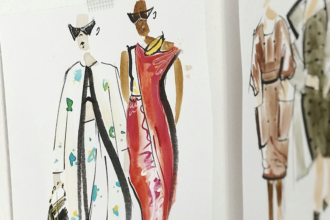The former McGill Journal of Feminist Studies (MJSF) has rebranded itself this semester as Intersections and expanded the journal to include an online section and events. The first of these events is an Open Mic at Gerts on Monday, November 28th from 6:30 to 8:00 pm.
The MJSF was created in early 2022 and “aim[ed] to fill a void at McGill University by creating a centralized platform that publishes on topics pertaining to gender and feminism and promotes the interdisciplinary nature of the field by publishing work from all disciplines and programs,” according to their website. So far, the journal produced one publication at the end of the winter 2022 semester featuring five articles written by McGill students.
The original journal for the Institute of Gender, Sexuality, and Feminist Studies was founded under the name Intersections. Their publications are compiled on the old intersections website and date back to 2003, although it is unclear if this was the year the journal was founded. In the 2021-2022 school year, the name of the journal was changed to the McGill Journal of Feminist Studies, but this year the leaders of the journal decided to revert the name back to Intersections. In an interview with Bull & Bear, co-editor-in-chief Catherine Plawutsky explained that they changed the name back to “connect [them]selves to what the journal used to be” in the spirit of “feminist values of acknowledging the people who came before us.” The name Intersections references intersectionality theory, which is a key component of feminist studies. Intersectionality theory explores the ways in which multiple forms of oppression, based on different components of someone’s identity, can interact and form unique forms of oppression. Kimberlé Crenshaw and Patricia Hill Collins are important Black feminist scholars who founded intersectional theory, specifically related to the intersection of sexism and racism in response to the racial exclusion of the feminist movement and the sexist exclusion of anti-racist movements.
Intersections has also expanded its work from that of the MJFS last year: in addition to establishing a print journal, they also organize events and have an online forum where it can publish more content than what is included in the print journal. Their first event will be an Open Mic on Monday, November 28th from 6:30 pm to 8:00 pm at Gerts. All interested students who would like to present a live performance in any format – including, but not restricted to, poetry, spoken word, and musical performances – are welcome to sign up. The event is also open for anyone to attend without signing up in advance. The online forum expands on the previous journal format as it can accept and publish more submissions than what is included in the print journal. Additionally, it allows the journal to showcase submissions outside of formal academic writing. These other forms of submissions include non-academic writing, poetry, opinion articles, and non-written work, but they must relate to feminism or social justice. Any McGill student can submit to the journal at any time for the opportunity to have their work published. Co-editor-in-chief Plawutsky explained how opening the journal to a range of forms of submissions is in line with the feminist and inclusive values of the journal. Plawutsky explained that accepting a variety of forms of submissions is important as “people express themselves in different ways” and “academic writing has not been something that is accessible to all people” for a variety of reasons. Further, they explained that “a lot of feminist scholars have written about how strict academic practices and conventions are not necessarily helpful when we want to get a bunch of diverse opinions and really try to be inclusive of people’s perspectives.” Plawutsky also explained that there is also “different value to different forms of media and expression.” By accepting a variety of forms of submission to the journal, Intersections is putting into practice the feminist values they preach and creating an inclusive and accessible space within academia.








